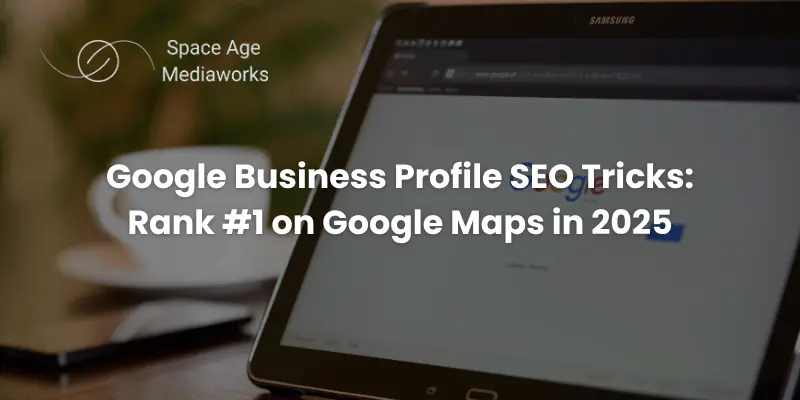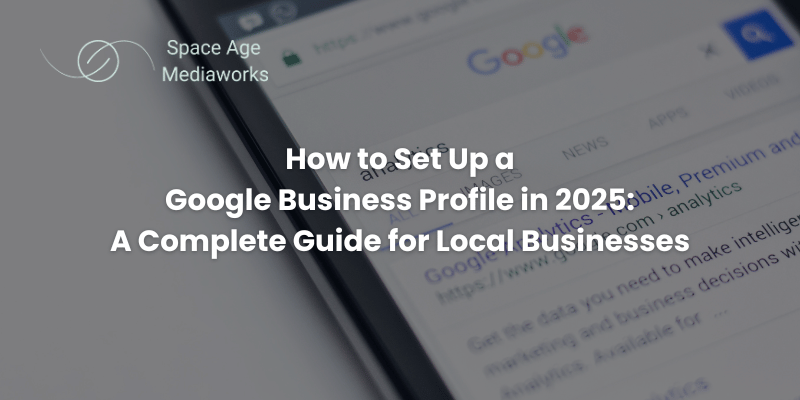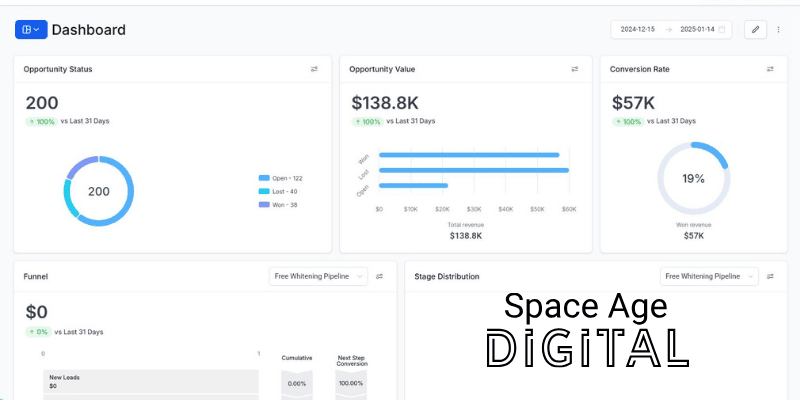
A Beginner's Guide to Keyword Research for Small Businesses
Keyword research is one of the most critical steps in developing a successful digital marketing strategy for your small business. It’s the foundation of search engine optimization (SEO) and ensures your website is attracting the right visitors who are interested in your products or services. But what are keywords, and how do you choose the ones that will make the most impact? This beginner-friendly guide will explain everything you need to know about keyword research and provide actionable steps to help your business grow.
What Are Keywords?
In the simplest terms, keywords are the words and phrases people type into search engines when looking for information, products, or services. For example, if someone is searching for a local bakery, they might use keywords like “best bakery near me” or “fresh bread in [city name].”
Keywords act as a bridge between what people are searching for and the content you provide on your website. By using the right keywords, you can improve your website’s visibility on search engine results pages (SERPs), driving more targeted traffic to your business.
Why Do Keywords Matter for Small Businesses?
For small businesses, keywords are essential because they:
- Increase Visibility: The right keywords help your website appear when potential customers search for products or services you offer.
- Drive Targeted Traffic: By focusing on relevant keywords, you attract visitors who are more likely to convert into customers.
- Support Local SEO: Keywords tailored to your location ensure your business is visible to nearby customers searching for local solutions.
- Build Authority: Using keywords strategically in high-quality content positions your business as an expert in your field.
- Maximize Marketing ROI: Keyword research helps you target your audience more effectively, making your marketing efforts more efficient.
Types of Keywords
Before diving into how to choose keywords, it’s important to understand the different types of keywords:
1. Short-Tail Keywords
These are broad, generic keywords consisting of one or two words, such as “pizza” or “plumber.” While they attract high search volume, they’re often too competitive and lack specificity for small businesses.
2. Long-Tail Keywords
Long-tail keywords are more specific phrases, often three or more words, such as “best pizza delivery in [city]” or “affordable plumber near me.” These keywords have lower search volume but higher intent and are easier to rank for.
3. Local Keywords
Local keywords include geographic terms, such as city names or neighborhoods, to target customers in your area. Examples include “pet grooming in Washington, MO” or “coffee shop downtown.”
4. Branded Keywords
These keywords include your business name or variations of it, like “Space Age Mediaworks reviews.” They’re important for ensuring your business appears when someone searches for you specifically.
5. Transactional Keywords
These keywords indicate that the user is ready to make a purchase or take action, such as “buy [product]” or “schedule HVAC repair.”
How to Choose Keywords That Drive Local Business
Now that you understand what keywords are and why they matter, let’s explore how to find the best ones for your small business. Here’s a step-by-step guide:
1. Start with Brainstorming
Begin by thinking about your business and what your customers might search for. Ask yourself:
- What products or services do I offer?
- What problems do my customers need solved?
- What words would I use to describe my business?
Pro Tip: Include team members or friends in this process to generate more ideas.
2. Use Keyword Research Tools
Keyword research tools can help you find relevant keywords and provide insights into their search volume and competition level. Here are a few beginner-friendly options:
- Google Keyword Planner: A free tool that shows search volume and related keywords.
- Ubersuggest: Provides keyword ideas, competition data, and content suggestions.
- Answer the Public: Visualizes popular questions and phrases related to your keywords.
- SEMRush or Ahrefs: Paid tools offering in-depth keyword analysis.
Action Step: Use these tools to generate a list of 20-30 keywords relevant to your business.
3. Focus on Long-Tail and Local Keywords
As a small business, long-tail and local keywords will be your best bet for driving targeted traffic. They’re less competitive and more aligned with the intent of potential customers.
Example: Instead of targeting “plumber,” use long-tail keywords like “emergency plumber in [city name]” or “water heater repair near me.”
Pro Tip: Include location-specific terms like your city, neighborhood, or landmarks to attract local customers.
4. Analyze Your Competitors
Take a look at your competitors’ websites and see which keywords they’re targeting. Tools like SEMRush or Ahrefs allow you to analyze competitors’ rankings and identify keyword gaps you can capitalize on.
Action Step: Make a list of keywords your competitors rank for and identify opportunities to differentiate your content.
5. Prioritize Keywords Based on Search Intent
Search intent refers to the reason behind a search query. Understanding intent ensures you target keywords that match your audience’s needs.
- Informational Intent: Keywords like “how to repair a leaky faucet” indicate the user is looking for knowledge.
- Navigational Intent: Keywords like “[brand name] login” show the user is looking for a specific website or page.
- Transactional Intent: Keywords like “buy coffee beans online” indicate the user is ready to make a purchase.
Action Step: Prioritize transactional and local keywords that align with your business goals.
Where to Use Keywords on Your Website
Once you’ve chosen your keywords, it’s essential to use them strategically across your website. Here’s where to place them:
1. Page Titles
Include your primary keyword in the title of each page to improve its relevance for search engines.
Example: “Affordable Lawn Care Services in [City]”
2. Meta Descriptions
Meta descriptions appear below your page title on search engine results pages. Use keywords to make these snippets engaging and relevant.
3. Headings and Subheadings
Incorporate keywords naturally into headings (H1, H2, etc.) to help search engines understand the structure of your content.
4. Content Body
Use keywords throughout your content but avoid overstuffing. Aim for a natural, conversational tone.
5. URLs
Include keywords in your page URLs to make them more descriptive and SEO-friendly.
Example: “www.yourbusiness.com/plumbing-repairs-washington-mo”
6. Image Alt Text
Add keywords to image descriptions (alt text) to improve accessibility and SEO.
Example: “A family enjoying freshly baked bread from [bakery name] in [city]”
7. Internal Links
Link to other pages on your site using anchor text with relevant keywords.
Common Mistakes to Avoid
Keyword research is essential, but it’s important to avoid these common pitfalls:
- Keyword Stuffing: Overusing keywords can harm your rankings and make your content unreadable.
- Ignoring Search Intent: Targeting irrelevant keywords can result in low-quality traffic.
- Focusing Solely on High-Volume Keywords: These are often too competitive for small businesses to rank for.
- Neglecting Local Keywords: If you’re a local business, failing to target local terms means missing out on nearby customers.
Measuring Success
After implementing your keyword strategy, it’s important to track your progress. Use tools like Google Analytics and Google Search Console to monitor:
- Organic traffic growth.
- Keyword rankings.
- Click-through rates (CTR).
- Conversions from organic traffic.
Action Step: Set aside time each month to review your metrics and adjust your strategy as needed.
Conclusion: Build Your Keyword Strategy Today
Keyword research is the foundation of a successful online presence for small businesses. By understanding what keywords are, why they matter, and how to choose the right ones, you can drive more targeted traffic to your website and grow your business. With the right tools and strategies, even beginners can develop a keyword plan that delivers real results.
If you’re feeling overwhelmed or don’t have the time to dive into keyword research, Space Age Mediaworks is here to help. Contact us today to learn how our expert SEO services can support your business growth.


















